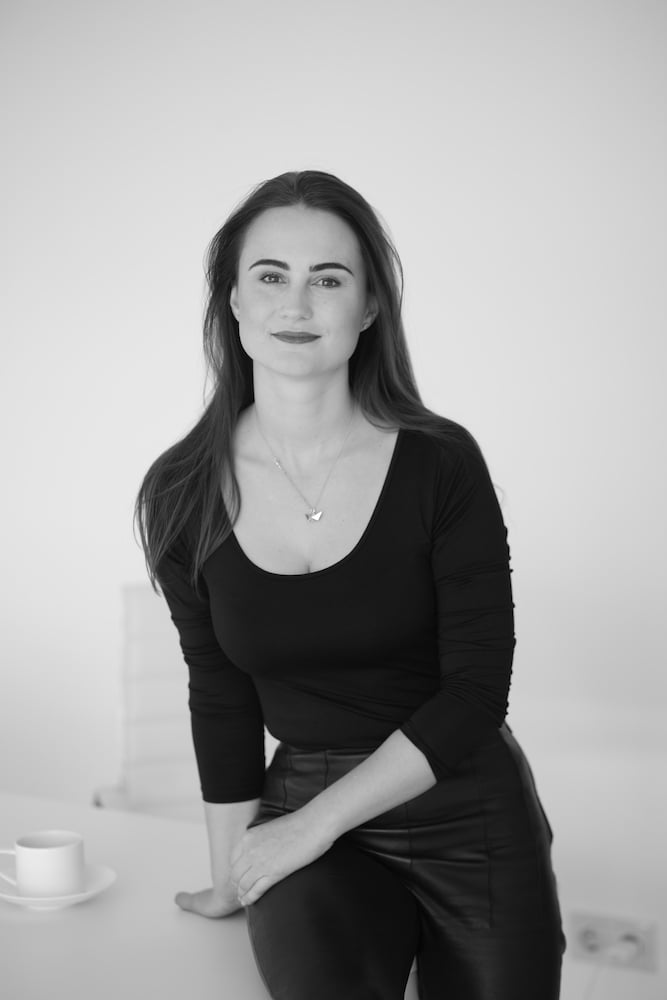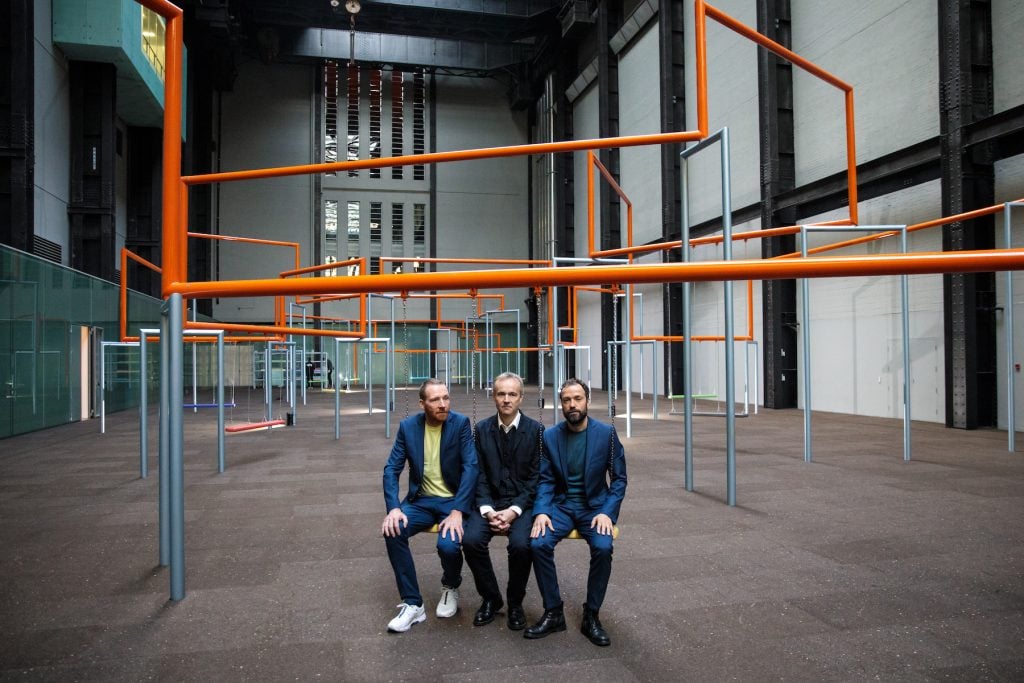The Riga International Biennial of Contemporary Art in Riga, Latvia returns this summer for its third edition, RIBOCA3. The event, originally scheduled for last summer, was canceled shortly after Russia invaded Ukraine.
The initial programme, “Exercises in Respect”, had been more or less prepared by the German curator René Block, when the war broke out on February 24. The RIBOCA team quickly shifted their organizing efforts to launching Common Ground, a center for Ukrainian refugees to gather, socialize and work. It offers a range of creative activities and children’s playrooms. Two months later, in April, they announced their decision to postpone this year’s event.
“We felt like the [original] the concept was irrelevant to the world that had changed,” Russian-born founder Agniya Mirgorodskaya told Artnet News of Block’s decision to produce an entirely new program. “He was very strong in his decision that there was no way to continue.”

Agniya Mirgorodskaya, founder of the Riga Biennial Foundation and curator of RIBOCA. Photo courtesy of Riga International Biennale of Contemporary Art.
Organizers may also have been concerned about the optics of the biennale’s financial support coming from a Russian: Mirgorodskaya’s father, fishing entrepreneur Gennady Mirgorodsky. Latvia shares a border with Russia and is also vulnerable to the vagaries of its aggressive foreign policy. Although it has a large Russian-speaking population, it has recently passed several new laws aimed at reduce the cultural influence of its neighbor.
“It was very clear from day one that we had to completely change our funding structure,” Mirgorodskaya said, adding that RIBOCA has not accepted any money from Russia since the start of the war. “In practice, that’s why we also needed that extra year.” The founder turned to her husband, an American financier working in real estate, who agreed to donate a fixed percentage of his earnings to a new endowment fund for the biennale. “It was his incredibly generous suggestion and a brilliant solution for us,” she said.
Block designed a two-part program. The first is in part an effort to exorcise last year’s abandoned concept of “Exercises in Respect” so that the biennale can start with a clean slate. A magazine launched on May 11 will feature all the works originally prepared for RIBOCA3 in 2022.
This will be followed in June by the “Intermezzo” exhibition at Kunsthal 44Møen in Denmark, of which Block is co-founder and artistic director. Of the 12 artists featured, a few were originally scheduled to appear at last year’s event, including Riga-born Evita Vasiljeva, whose original installation of upside-down concrete benches will reappear in a specific new form. to the site, which will instead topple pre-existing shoals on the Danish island of Møn.
The second part, which shifts the focus back to Riga, includes two simultaneous exhibitions that open on August 10 with an undetermined end date. Block’s ‘Fragment’ at the Old Technical University of Riga is dedicated to artists working with moving image and sound, including the work of pioneering video artist Nam Jun Paik and French filmmaker Clement Cogitore.

Members of the Danish collective Superflex [left to right] Jakob Fenger, Rasmus Nielsen and Bjornstjerne Christiansen pose in One Two Three Swing!, their Turbine Hall installation at Tate Modern on October 2, 2017 in London, England. Photo taken by Jack Taylor/Getty Images.
This year, Block will share his curatorial responsibilities with the social collective SUPERFLEX, founded in 1993 and recognized for its large-scale participatory works. They produced the biennial’s ongoing central project “There’s an Elephant in the Room”, staged across multiple venues, which invites 25 female artists to tackle a topic they deem urgent, taboo or controversial, such as ongoing war against Ukraine. .
Since its creation in 2016, RIBOCA has become the premier showcase and destination for art from the Baltic region. It expands its ambitions by inviting artists to stay in the city and collaborate for long periods of time and by offering a rotating array of public works.
“This year, the biennale will not last just a few months,” said general manager Inese Dabola, noting the lack of a permanent supply of contemporary art in the city. “We think of art as an infrastructure, we want to be more rooted and contribute as much as possible to the local art scene.”
Follow Artnet News on Facebook:
Want to stay one step ahead of the art world? Subscribe to our newsletter to receive breaking news, revealing interviews and incisive reviews that move the conversation forward.
